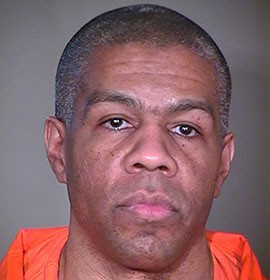Cronkite News has moved to a new home at cronkitenews.azpbs.org. Use this site to search archives from 2011 to May 2015. You can search the new site for current stories.
Appeals court orders another look at 1980 murder of UA student
WASHINGTON – A federal appeals court Wednesday ordered a new hearing for the confessed killer of a University of Arizona student, saying Scott Clabourne’s attorney failed to challenge the admissibility of his confession.
A three-judge panel of the 9th U.S. Circuit Court of Appeals said a lower court needs to consider whether Clabourne can claim he was poorly represented because his attorney failed to object to the confession.
Clabourne and two other men were convicted in the 1980 murder of a Laura Webster, a 22-year-old student they met at the Green Dolphin bar in Tucson.
Webster was last seen leaving the bar with the three men, who said they were going to a party, according to court documents. Instead, she was taken to a house where she was beaten and raped for “approximately six hours.”
Eventually, Clabourne strangled Webster with a bandana and stabbed her twice with a knife. The men wrapped her naked body in a sheet and threw it from a bridge into the dry bed of the Santa Cruz River, where it was found the next day.
The crime went unsolved for about a year until Clabourne’s then-girlfriend, Shirley Martin, told police he had admitted to being involved in a murder.
Clabourne, who was being held in the Pima County Jail at the time on an unrelated burglary charge, had filed a statement invoking his right to remain silent in that case, according to court documents. But detectives interviewed him anyway about the murder, without his attorney present, and Clabourne gave a detailed confession.
Clabourne was charged with first-degree murder, sexual assault and kidnapping. The court found him competent to stand trial, and he was convicted in 1982 on all counts. He was later sentenced to death for the murder, as well as four concurrent terms of 14 years for the kidnapping and sexual assault.
Co-defendant Larry Langston pleaded guilty to first-degree murder and was sentenced to life in prison while the third suspect, Edward Carrico, was sentenced to three years of probation after cooperating with prosecutors.
The case has gone through decades of appeals, including the latest appeal to the circuit court in which Clabourne raised a number of challenges. The appellate court upheld most of the case against Clabourne, but sent it back to U.S. District Court to consider the question of his confession.
The appeals court pointed to a 1988 ruling that extended a suspect’s invocation of his Miranda rights to all questioning, not just the case for which he invoked the rights. While that was not the law when Clabourne was tried, the court said, it should have been applied when his case was reopened and he was resentenced in 1997.
“By 1997, it was established that the admission of Clabourne’s statement violated his rights under the Fifth Amendment,” said the opinion by Circuit Judge Richard R. Clifton.
Attorneys for Clabourne and for the Arizona attorney general’s office did not respond to requests for comment Wednesday on the latest ruling.







